Act I
In the castle of the Marchese di Culatravu in Seville. The Marchese is bidding Leonora, his daughter, good night. After he departs, Leonora admits to Curra, her cliambermaid, that she has promised to elope with Alvaro that very night, only is now undecided. She knows that her father, the Marchese, will never give his consent to their marriage, for Alvaro is the sole survivor of a family of pro-lnca noblemen exterminated for struggling against the Spanish colonial overlords. Alvaro appears in the room, entering through the balcony. With great difficulty, he persuades Leonora to run away with him. They are interrupted by the appearance of her father, who is armed and accompanied by two servants. Alvaro is prepared to die at the hands of the outraged Marchese, but instead of killing him, the Marchese orders his servants to sei/e Alvaro. Forced to defend himself, Alvaro draws a pistol. Unable to use the gun against the father of the one he loves, however, he throws it to the ground. The pistol falls to the floor and discharges on im pact. The Marchese is mortally wounded and dies cursing his daughter. Leonora faints and Alvaro runs away.
Act II
Several months later. Leonora is disguised as a man, a muleteer's assistant. She finds herself in the village of llornachuelos, where peasant festivities are under way, and recognises one of the guests as her brother Carlo. Carlo is seeking to avenge the honour of his family under the guise of Pereda, a student in search of his sister and her lover. Pre/iosilla, a gypsy girl, tells the fortunes of those who are present and predicts imminent war with Austria. She calls on everyone to go to Italy and join the army. At the sight of Pereda, Prexiosilla casts doubts on his identity and foretells him a terrible fate. Leonora prays to be delivered from her brother's vengeful fury. Carlo tries but fails to learn from Trabuco,a muleteer,the identity of the silent companion who is staying away from the festivities. The elderly Alcalde suggests that the student reveal who he really is. Carlo is allusive and refers to himself as a friend of the Marchese's son. To Leonora's dismay, he tells the story of the killing of the Marehese di Calatrava and his son's thirst for revenge. Toward evening, the events continue near the Monastery of Our Lady of the Angels. Leonora is tired ajid still dressed as a man. She sings of her desperation and her hope of finding peace of mind in the monastery, where she intends to spend what is left of her life in penance for her sins. The Father Superior (Padre Guardiano) agrees to allow Leonora to remain in a nearby cave. He pronounces a general curse on anyone visiting the cave or speaking to the anchorite, who is only allowed to eat whatever he himself takes to feed her. As a last resort, the hermit may call for help by ringing a bell.
Act III
A Spanish army camp near Velletrijtaly. Several years have passed and Alvaro is serving in the Spanish army as a captain. Under the alias of Don Federico Herrero, he has won fame for his outstanding valour. Alvaro reflects on his misfortunes while thinking of Leonora, whose soul he assumes to be in heaven. The sound of a quarrel brings him running to the rescue of an unknown officer whose life is being threatened by gamblers. The officer is none other than Carlo, still on Alvaro's trail. Carlo introduces himself as Don Felice de Bornos. The two do not recognise each other and, in exchange for having saved his life,Carlo solemnly swears friendship to Alvaro.
The battle now flares up again. Alvaro is badly wounded and is rescued by his new friend. The surgeon who is about to extract the bullet is uncertain as to the outcome of the operation. To encourage his friend on the brink of death, Carlo promises to have him appointed a Knight of Calatrava. This name leads to an angry outburst from Alvaro. Alvaro entrusts Carlo with the key to his purse, where his friend will find a letter to be destroyed in the event of Alvaro's death.
Carlo is surprised and disturbed at his friend's angry reaction to the name of Calatrava. Resisting the urge to read the letter. Carlo opens the purse and finds a portrait of Leonora. Alvaro's identity is revealed. Carlo is glad that the operations has been successful, as his enemy is alive and he now has thechance of revenge.
A military camp near Velletri. The night watch passes by. Morning is approaching. The camp stirs. The soldiers are drinking and having fun gambling, among them the gypsy girl Preziosilla who forecasts success for all. Travelling salesmen offer their wares, beggars and their children plead for alms, the recruits bemoan their bitter fate and Fra Melitone threatens the sinners with God's wrath. All are united by Preziosilla's call to fight for their native land.
Alvaro makes a complete recovery and is amazed to learn that Carlo has challenged him to a duel. At this point, Alvaro learns that Leonora is still alive. When he hears that Carlo intends to kill his sister, he immediately takes up the challenge. Believing that he has killed his friend in the duel, Alvaro throws himself into battle, hoping to die.
Act IV
Some five years later, outside the Monastery of Our Lady of the Angels. Fra Melitone is distributing food to the poor. The beggars lament the absence of Padre Rafaello, who can no longer serve them due to the severity of his penitence and his troubled spirit. Carlo, who was left unconscious during the duel, appears and asks to speak to Padre Rafaello. Summoned by the gatekeeper, Padre Rafaello turns out to be none other than Alvaro. Carlo accuses Alvaro of cowardice and Alvaro is goaded into taking up arms again. They choose as the sight of their duel the spot right in front of the cave where Leonora is living in refuge. Carlo is mortally wounded in the duel. Seeking a confessor for the dying man, Alvaro decides to turn to the mystery hermit. Leonora rings the bell to obtain help from the monastery. She then recognizes Alvaro and the identity of his opponent. Leonora runs out to her dying brother, who stabs her when she tries to embrace him. The monks running in answer to the bell arrive to find Alvaro in the act of suicide, cursing all humanity.
Place: Spain and Italy
Time: around 1750
Overture
The music begins with the opera's "Fate" motif, an ominous three Es unison in the brass.
Act 1
The mansion of Leonora's family, in Seville
Don Alvaro is a young nobleman from South America (presumably Peru) who is part Indian and who has settled in Seville where he is not very well thought of. He falls in love with Donna Leonora, the daughter of the Marquis of Calatrava, but Calatrava is determined that she shall marry only a man of the highest birth. Despite knowing her father’s aversion to Alvaro, Leonora is deeply in love with him, and she determines to give up her home and country in order to elope with him. In this endeavor, she is aided by her confidante, Curra. (Me pellegrina ed orfana – "Exiled and orphaned far from my childhood home").
When Alvaro arrives to fetch Leonora, she hesitates: she wants to elope with him, but part of her wants to stay with her father; she eventually pulls herself together, ready for their elopement. However, the Marquis unexpectedly enters and discovers Leonora and Alvaro together. He threatens Alvaro with death, and in order to remove any suspicion as to Leonora’s purity, Alvaro surrenders himself. As he flings down his pistol, it goes off, mortally wounding the Marquis, who dies cursing his daughter.
Act 2
Scene 1: An inn in the village of Hornachuelos
About a year has passed since the death of the Marquis of Calatrava. While fleeing the scene, Leonora and Alvaro became separated, and neither has made any concerted effort to find the other.
In this scene, the Alcalde, several peasant muleteers, Don Carlo of Vargas (the brother of Donna Leonora), and many others are gathered in the kitchen of the inn as dinner is served. Don Carlo, disguised as a student from Salamanca and using the fictitious name Pereda, is now seeking revenge against Alvaro and Leonora for dishonoring the family name. (Son Pereda son ricco d'onore – "I am Pereda, of honorable descent"). During the supper, Preziosilla, a popular young gypsy girl, arrives, and she tells the young men’s fortunes and exhorts them to enlist in the war (Al suon del tamburo – "When side drums rattle") for Italy’s freedom, which all agree to do. Leonora arrives in male attire, on her way to a nearby monastery, but luckily she slips away without being discovered by Carlo.
Scene 2: A monastery nearby
Leonora has come to take refuge in the monastery to live out her remaining days secluded from the rest of mankind. (Son giunta! ... Madre, pietosa Vergine – "I've got here! Oh, thank God!") After a somewhat surly reception by Fra Melitone, she tells the abbot, Padre Guardiano, her true name and her wish to spend the remainder of her life in the monastery's hermitage. The abbot recounts the trials she will have to undergo. Leonora, Padre Guardiano, Fra Melitone, and the other monks join in prayer as she is accepted in the hermitage.
Act 3
Scene 1: A forest near Velletri, in Italy
Meanwhile Don Alvaro has joined the Spanish army under the name of Don Federico Herreros (La vita è inferno all'infelice ... O tu che in seno agli angeli – "Life is a hell to those who are unhappy....Oh, my beloved, risen among the angels"). One night he saves the life of Don Carlo who is serving in the same army under the name of Don Felix Bornos. They become close friends and go side by side into the Battle of Velletri, an historical event which occurred in 1744.
Scene 2: The officers' quarters
In one of these engagements Don Alvaro returns, believing himself to be mortally wounded. He entrusts to Don Carlo’s care a valise containing a bundle of letters which he orders his friend to destroy as soon as Don Alvaro dies: (Solenne in quest'ora – "Swear to me, in this solemn hour"). Don Carlo has sworn not to look at the contents of the letters; but he becomes suspicious of his friend. (Morir! Tremenda cosa! ... Urna fatale del mio destino – "To die! What an awesome thought...Get away, fatal lot sent to my Destiny!"). He opens the valise, finds his sister’s picture, and realizes Alvaro's true identity. At that moment a surgeon brings word that Don Alvaro may recover. Don Carlo is overjoyed at the idea of avenging his father’s death.
Scene 3: A camp near the battleground
Having recovered, Alvaro is confronted by Carlo. They begin to duel, but are pulled away from each other by the soldiers. As they restrain Carlo, the anguished Don Alvaro vows to enter a monastery.
The soldiers gather. Trabucco, the peddler, tries to sell them his wares; Fra Melitone chastises them for their godless ways; and Preziosilla leads them in a chorus in praise of the military life (Rataplan, rataplan, della gloria – "Rum-tum-tum on the drum is the music that makes a soldier's martial spirit rise").
Act 4
Scene 1: The monastery
Impoverished peasants from the region approach Fra Melitone at the monastery at Hornachuelos for food and Padre Guardiano gently scolds Melitone for his less than charitable behavior towards them. Don Carlo then approaches, having learned of the presence of Don Alvaro there. Under the name of Father Raphael, Alvaro has indeed entered the monastery, near which is Leonora’s cave. Don Carlo forces him into a fight (Le minacce, i fieri accenti – "May the winds carry off with them").
Scene 2: A desolate spot near Leonora's hermitage
Leonora prays that she may find peace in death (Pace, pace mio Dio! – "Peace, O mighty Father, give me peace!"). Alvaro runs in, calling for help, having mortally wounded Carlo in their duel. The two lovers recognize each other. Leonora seeks her brother and, as she bends over him, he stabs her in the heart. The dying Leonora returns, supported by Padre Guardiano; he and Alvaro pray to heaven as she dies.


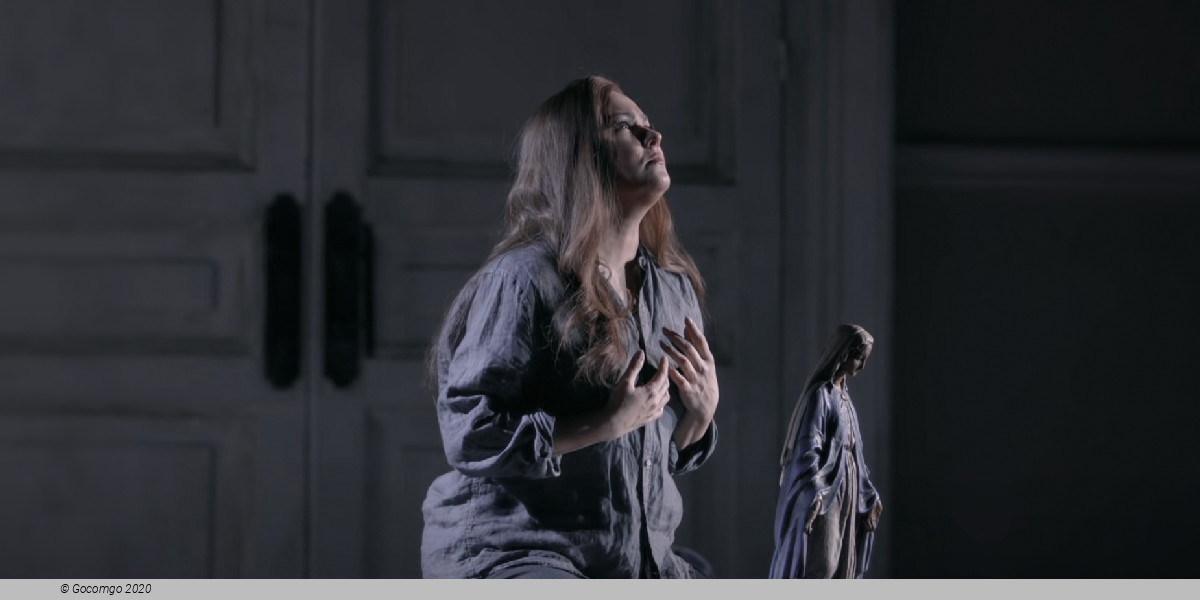
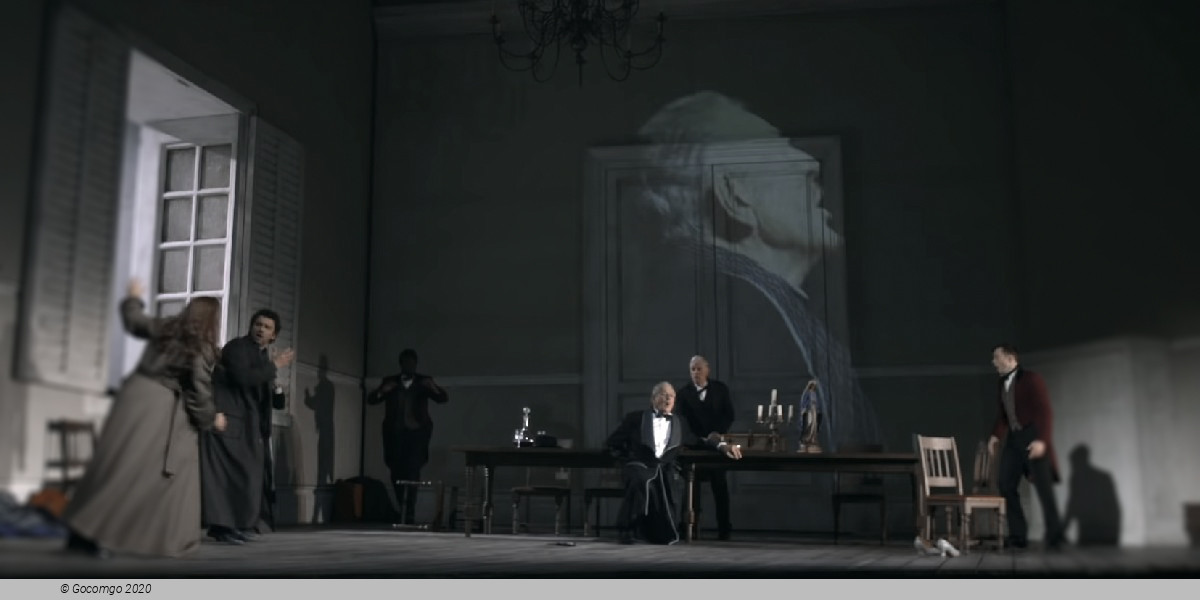
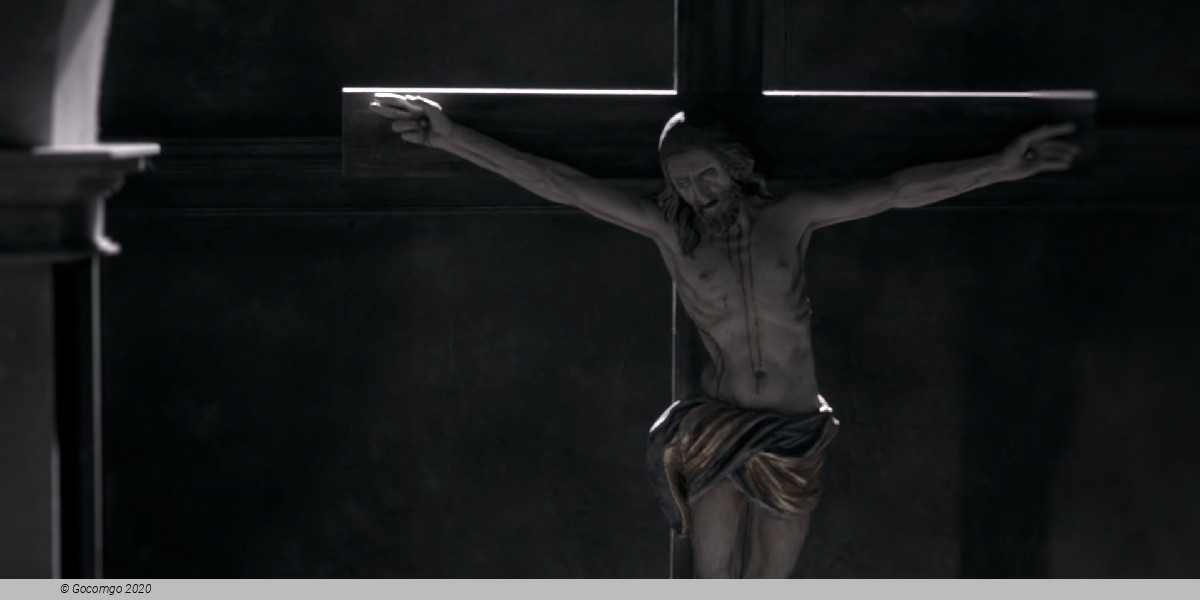
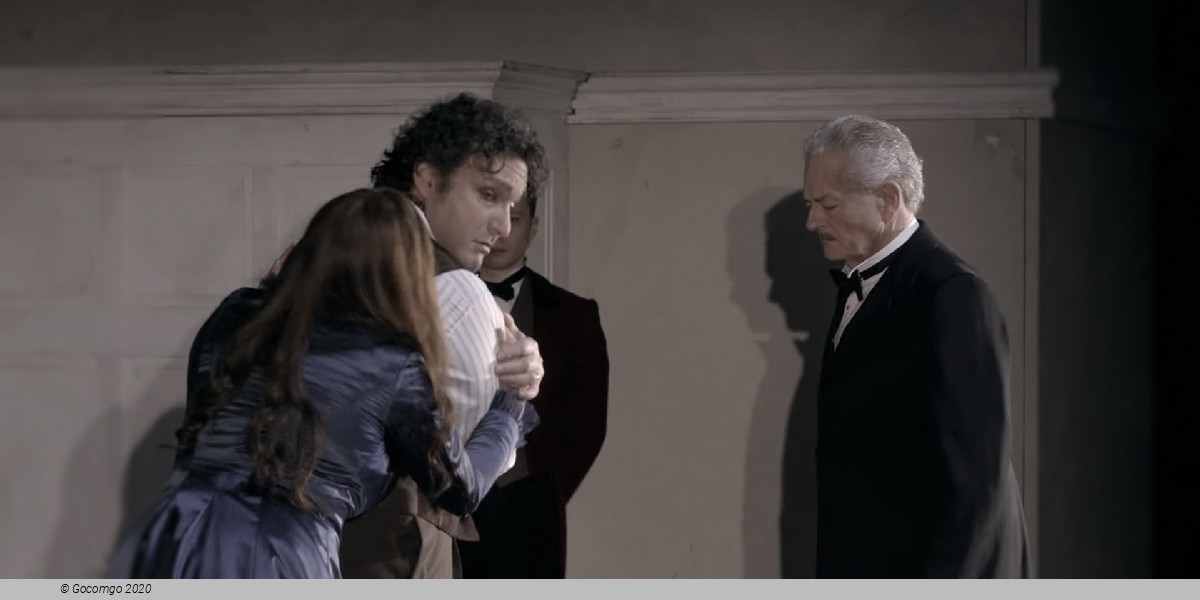
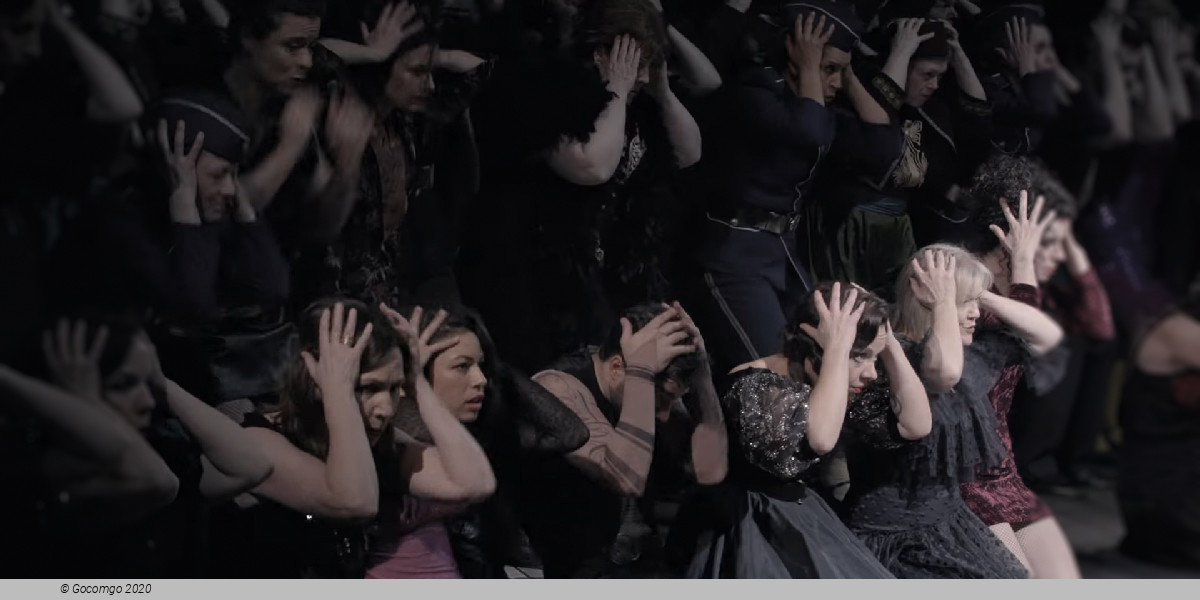
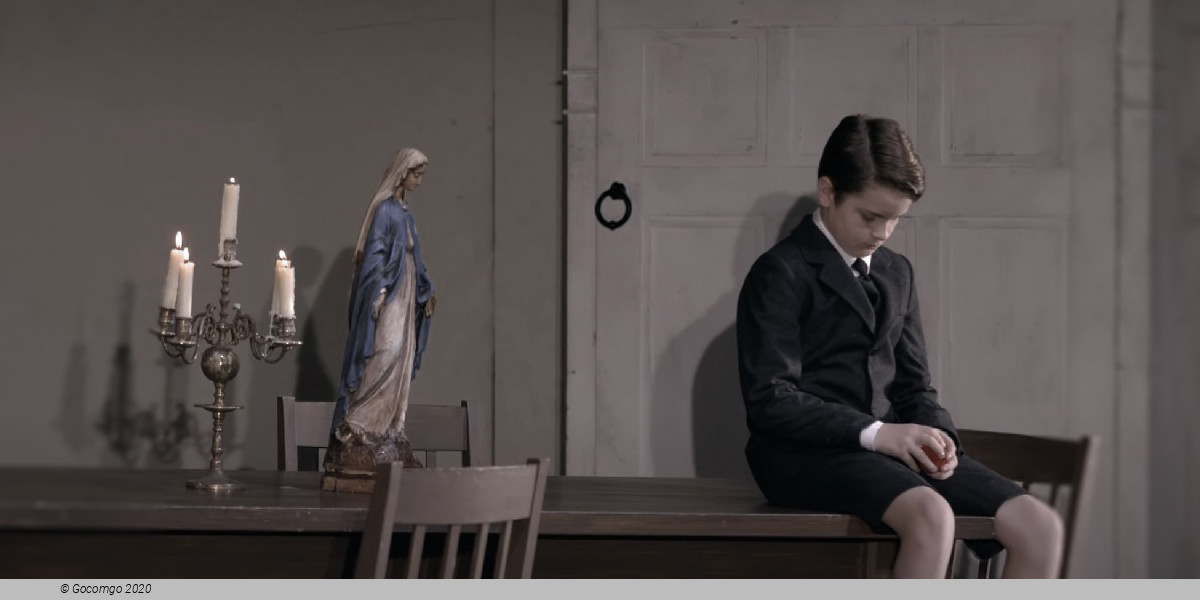
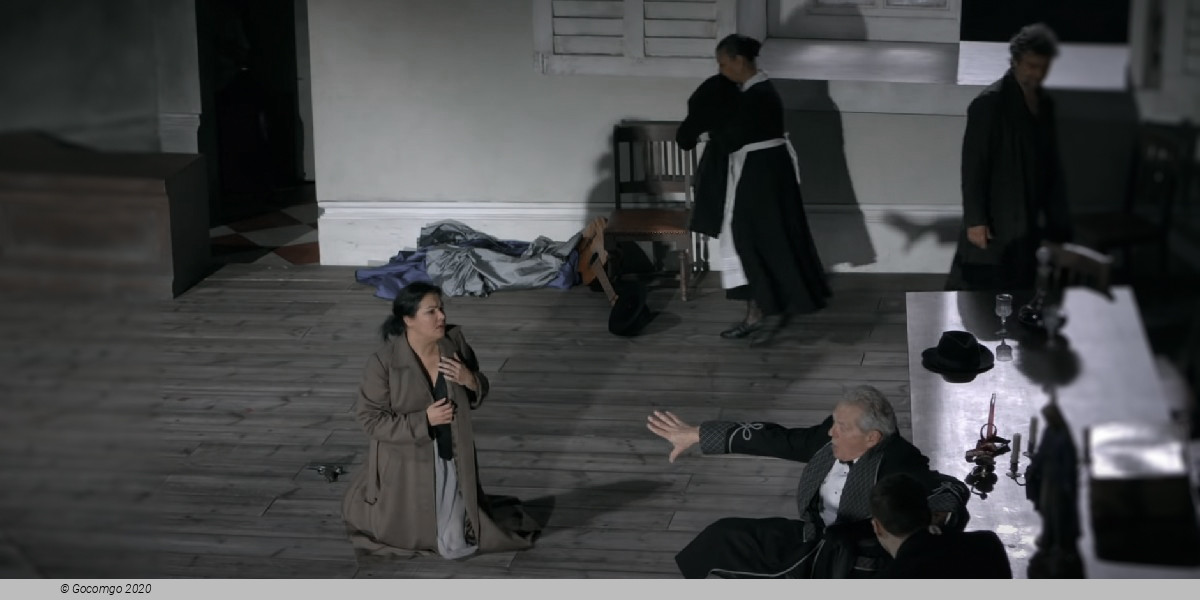
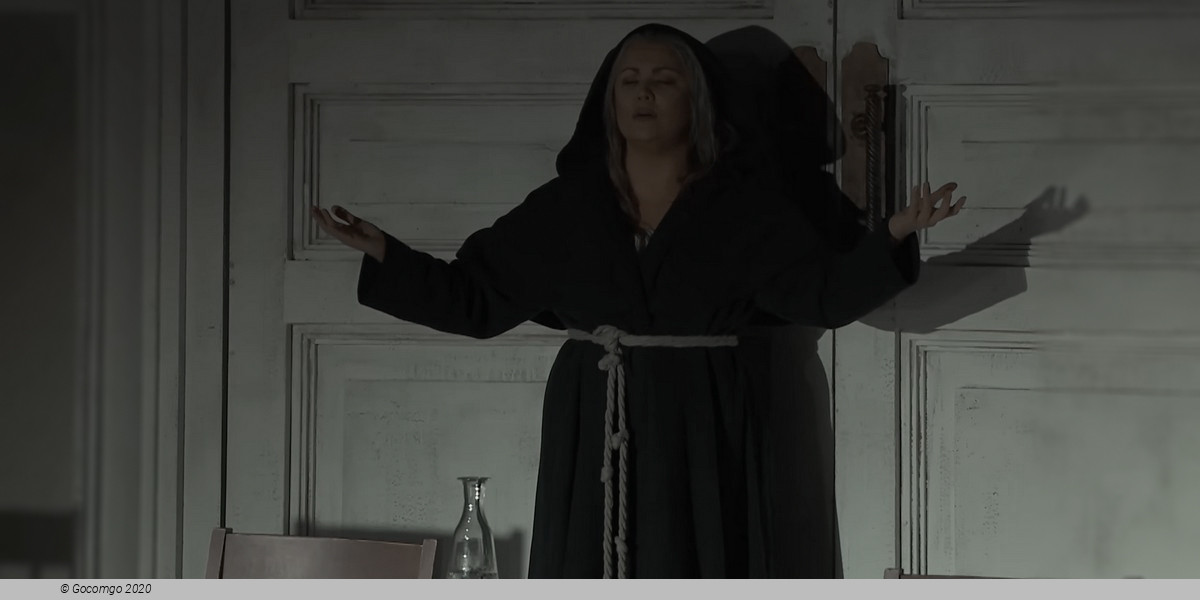
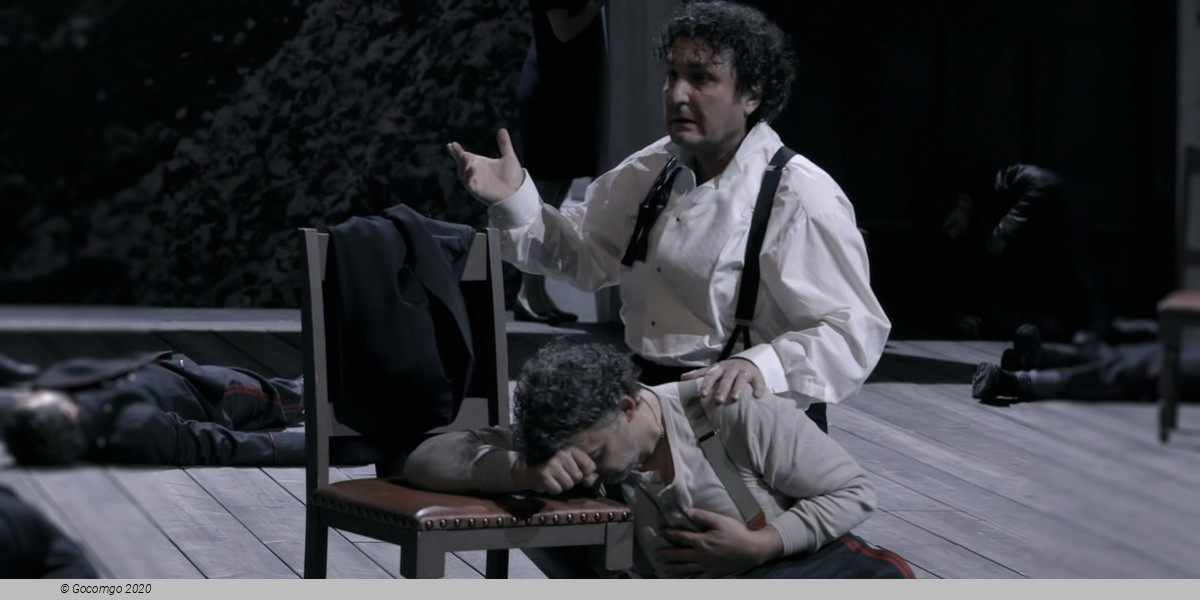
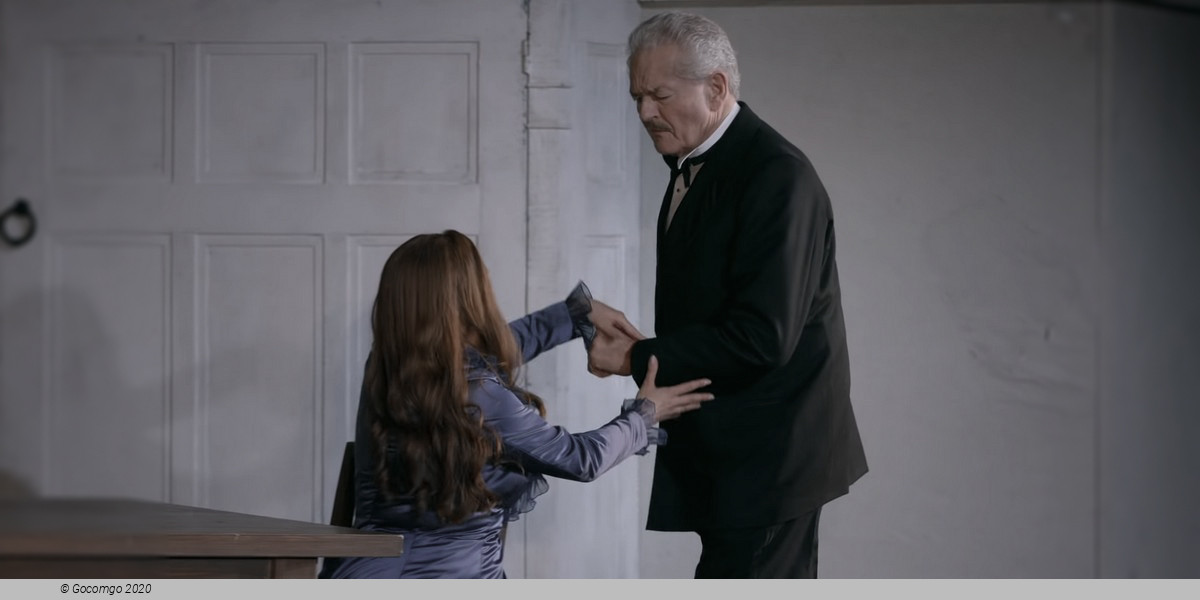
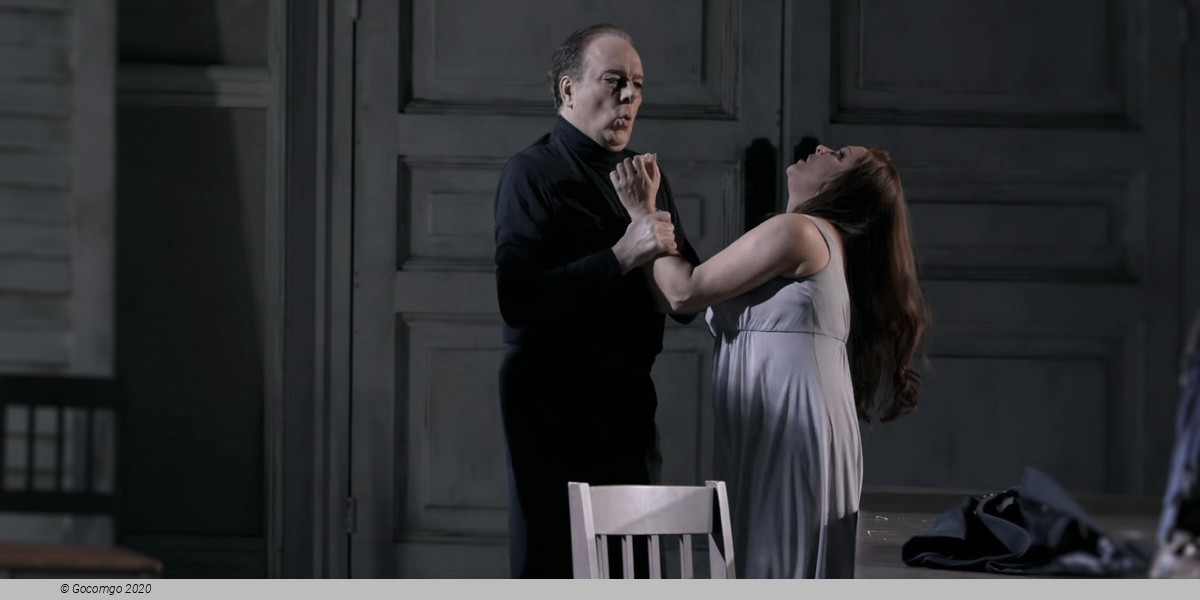
 1 Theatre Square
1 Theatre Square